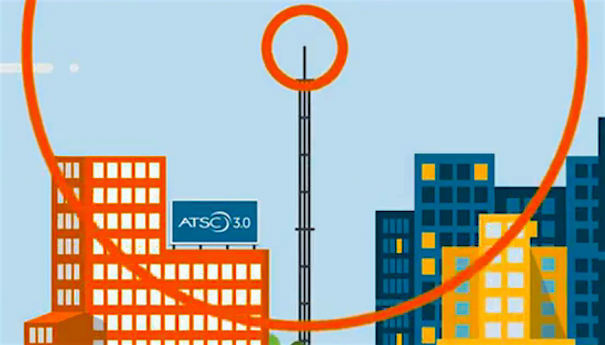
The professional video industry's #1 source for news, trends and product and tech information. Sign up below.
You are now subscribed
Your newsletter sign-up was successful
WASHINGTON D.C.—America’s Public Television Stations (APTS) and PBS this week in reply comments told the FCC it should reject the proposals of the cable television industry regarding its Second Further Notice of Proposed Rulemaking on ATSC 3.0 and flexibility of multicast licensing.
“All of the proposals by the cable industry are transparently designed to stymie NextGen TV deployments, ostensibly for the sake of ‘protecting’ the cable industry, but ultimately for the purpose of hamstringing the resurgence of innovative free over-the-air options for the public,” the filing said.
At issue is administration of multicast hosting authorization and specific rules governing that authorization. To enable broadcasters to make a voluntary transition to ATSC 3.0, multicasting legacy DTV broadcasts from a station hosting multiple channels has played a key role in clearing a channel for 3.0 rollouts. Similarly, 3.0 hosting of multiple channels has enabled more than 40 markets to transition to NextGen TV so far. In many instances, the 3.0 hosting arrangements are authorized under an FCC rule waiver.
APTS took issue with four points in the proposal from NCTA and the American Television Alliance, including making multicast hosting conditioned on authorization during Quadrennial Review; a requirement broadcasters simulcast their 1.0 multicast streams on their 3.0 capacity; prohibiting 1.0 multicasts via a host station; and adoption of a five-year sunset on the rule permitting flexible multicast hosting arrangements.
“If the FCC were to adopt these unreasonable and unnecessary proposals, then the Commission would come perilously close to suppressing the First Amendment freedoms and editorial discretion of broadcasters to choose what types and amounts of programming to air on their broadcast channels to best serve the local public interest,” it said.
Saying the cable industry’s proposals simply address the “parochial concerns” of cable operations and calling them “out of place” in the proceeding, APTS and PBS told the commission that what’s needed is a “continued light regulatory touch.”
“[That]…has served the FCC and the public extraordinarily well during the initial stages of the ATSC 3.0 transition,” the filing said.
The professional video industry's #1 source for news, trends and product and tech information. Sign up below.
Phil Kurz is a contributing editor to TV Tech. He has written about TV and video technology for more than 30 years and served as editor of three leading industry magazines. He earned a Bachelor of Journalism and a Master’s Degree in Journalism from the University of Missouri-Columbia School of Journalism.

